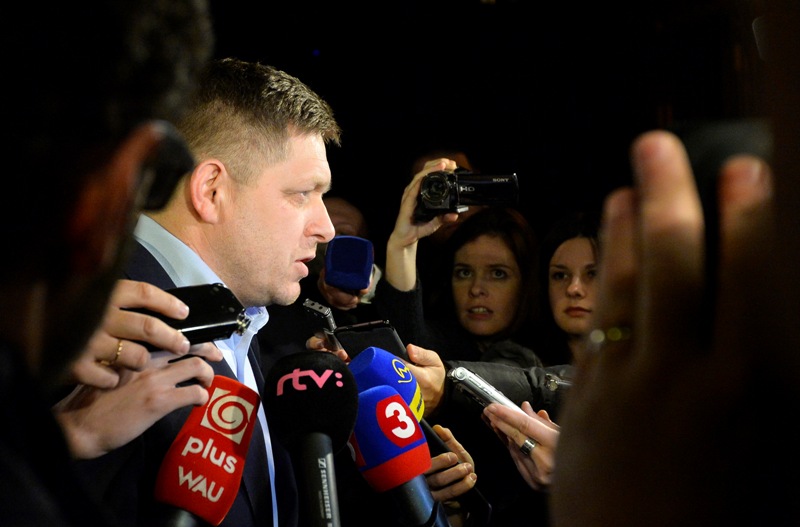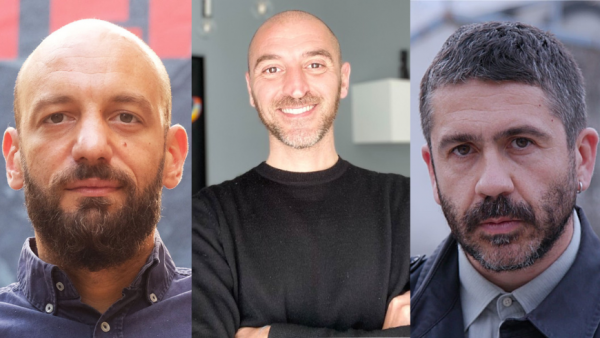The International Press Institute (IPI) today called on Slovak Prime Minister Robert Fico to reverse a cabinet-wide decision to shut out a national newspaper at government press conferences in retaliation for the newspaper’s unflattering coverage.
Members of Fico’s cabinet announced on Monday that they would ignore any questions from the newspaper Denník N on the basis of claims that it was reporting in a “tendentious” manner.
The decision was apparently spurred by the newspaper’s inclusion of stickers designed by popular cartoonist Martin “Shooty” Šútovec that mocked Fico’s financial affairs and depicted him as a burglar, among other things. In an initial reaction to the stickers, two Denník N reporters who were to accompany Fico to Moscow for celebrations of the 70th anniversary of the end of World War Two last week were stripped of their accreditation.
The Cabinet Office said in a statement explaining the move that Denník N’s manner of covering government issues showed that it had joined “opposition political subjects”, causing the cabinet to “not see sense in further communication”.
The Office said that members of Fico’s cabinet – including 13 ministers and Deputy Prime Minister Ľubomír Vážny – took the joint decision to stop answering Denník N’s questions during a May 6 cabinet session. Fico himself, however, reportedly has not answered questions from Denník N or the daily SME newspaper for quite some time.
IPI Director of Advocacy and Communications Steven M. Ellis said the cabinet decision would ultimately harm Slovak citizens’ ability to be fully informed about government actions.
“Governments should never be in the business of deciding which media outlets should or shouldn’t be allowed to cover them,” he said. “And critical coverage, while unpleasant for officials to endure, is often vital to accountability and the ability to make informed decisions – two things essential to a healthy democracy. We urge Prime Minister Fico and his cabinet to reverse this decision, to accept the scrutiny that comes with holding public office and to answer questions from all members of the news media on an equal basis.”
Fico, who first served as prime minister from 2006 to 2010 and returned to the office in 2012, had a difficult relationship with the media during his first term, when he developed a reputation for verbally attacking journalists as well as accusing them of biased reporting and disseminating lies about the government. He filed numerous lawsuits against newspapers over cartoons, photographs and claims he said were “harmful to national and state interests”. He also was a driving force behind an extremely-controversial media law enacted in 2008 that many critics said was intended to muzzle the media.
Despite publicly declaring “eternal peace” with Slovakia’s media at the beginning of his second term, Fico sued publishing house Spoločnosť 7 plus a year later over reports in the Plus Jeden Deň daily about meetings with a female employee that implied that their relationship was more than a formal, professional one. Additionally, ahead of presidential elections in 2014, Fico’s refusal to communicate with journalists from SME led to his absence from a debate hosted by the newspaper.



